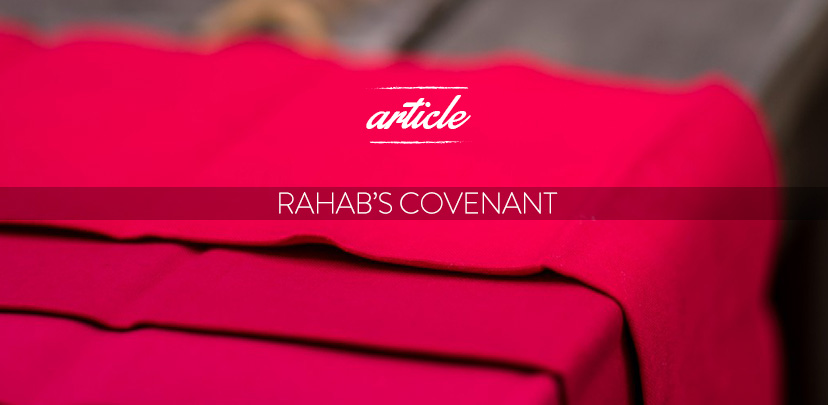The opening chapters of Joshua bear striking similarities with the earlier accounts of the Exodus. You see the crossing of the Red Sea paralleled by the crossing of the Jordan. You see the sending of the 12-spies into the promised land by Moses paralleled by Joshua’s sending of the two spies into the land. But amongst these parallels, Rahab’s Covenant stands out in providing insight into the Passover.
So who was Rahab? She is first introduced to us in Joshua 2:1 as an “ishah zonah”, or a woman prostitute, in whose home Joshua’s two spies took refuge. Because she had heard that God was with Joshua and his men, she decided to stand on the side of the spies and hid them from their enemies and eventually helped them escape. Rahab lived a less than ideal life, a harlot whom few would respect.
As she helped the spies, she asked to enter into a covenant with them – “swear to me by Yahovah, since I have dealt kindly with you, that you also will deal kindly with my father’s household …” (Josh 6:12) Her faith had somehow led her to call upon the name of God! The spies agreed to the covenant and attached one condition – that of a scarlet thread. Rahab was to tie a scarlet thread to her window and when Joshua’s armies march on Jericho, that thread will cause those in that household to be spared, but anyone outside of that house will fall by the sword. Here we see the same motif from the Passover where the blood of the lamb marked a household to be spared by the Lord (Exo 12:7,13).
There are three interesting observations that we can make from Rahab’s covenant (and from the Passover):-
- The covenant protected the household. Whoever was in that household was covered. (Act 16:31)
- It was not contingent upon the merits of those in that household
- If you leave the covered household, you are not protected by the covenant
This is a picture of God’s covenant with us, a covenant of grace not based on our merits. The condition attached to it is that we must remain under the covering of the covenant, marked by the “true token” (Josh 2:12) scarlet thread in Rahab’s case, and by Yeshua’s blood in our case.
Joshua 2:15 tells us that Rahab lived “on” or “in” the city wall. This is likely a casement wall apartment but if so, it must mean that when the wall fell flat, Rahab’s house along with the scarlet thread flying from the window remained intact. Joshua spared Rahab and her household as a testament to the fact that God remembers his covenant with us. In the same way that Rahab was saved by her works which evidence her faith (James 2:25, Heb 11:31), so too we enter into a covenant of protection under the blood of Yeshua by our act of faith, and by continuing under that covenant.
Rev. Daniel Wee is currently serving as the vicar of Church of Our Saviour (Anglican) in Singapore. His interests include OT studies, photography, electronics, statistics and reading (when he has time for them!)




